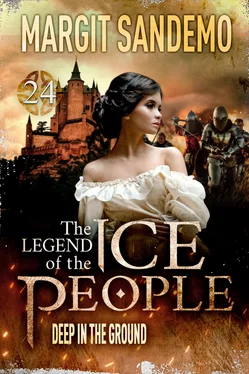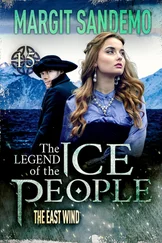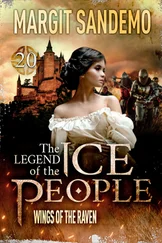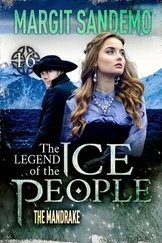Dearest Gunilla,
I’m confiding in you because I feel that you and I are very close to one another. Perhaps because we share the same name?
You see, I have a special reason for wanting to accept the teaching position. Do you remember Adrian Brandt, Kerstin Brandt’s brother, the one who owns the mine? You met him once when you happened to be here at the same time as Birgitta and her friend Kerstin and her brother. Do you remember how infatuated I was with him? It was my first love, and I kept it very secret. Didn’t you think he was handsome, too? A little dreamy, melancholic and very romantic? Later on I heard that he was in love with someone else, and that was the reason for his melancholy demeanour. He married her, but he is now a widower. Oh, how stupid I was back then: I was terribly young and it was my very first love. I cried when I heard that he had got married! But stupid as I was, I’ve never been able to forget him. I haven’t had any opportunities to meet other young men, so Adrian has remained in my mind as something unspeakably beautiful and bittersweet. I really think that I still love him!
That is why I want to go to Ytterheden. Please don’t laugh at me – I had to tell someone!
Gunilla understood her and didn’t laugh. She wrote a short, friendly reply and wished Anna Maria the best of luck.
But Anna Maria might have been a little more hesitant with regard to her bold decision had she read the letter that her Aunt Birgitta sent to her friend Kerstin Brandt. Among other things, she wrote:
I am certain that your brother Adrian will find Anna Maria absolutely enchanting! Do you remember that she had a crush on him when she was little? Now she has grown up and is exactly the right one for him. Gentle, understanding and accommodating. Just what a widower needs. And something else to take into careful consideration: she has inherited a fortune! The house near Skenäs Farm will be hers, and it’s a wonderful house with quiet a lot of land. Furthermore, her grandmother is supposedly worth several thousand rigsdaler, beside what the girl has at her disposal in various accounts!
Anna Maria arrived at Ytterheden in the autumn, when the heather was still aflame on the moors and a few late migrating birds were heading south in V-shaped formations, lamenting plaintively.
The mail coach had dropped her off where the heather began. It would have been a long detour for the coach to drive into the village, so Anna Maria had offered to walk the rest of the way. She was carrying a travelling bag and walked confidently along the path that wound through the heather. For a brief moment she stopped to look around, gazing up at the sky as she took a deep breath. The air was so clean, so salty and fresh; the foaming ocean was a greyish-blue colour out there across the reefs, but the moor looked like a vividly coloured painting.
I’m certain to thrive here, she thought, because she had not yet experienced the rigours of autumn and winter and knew nothing about the insignificance of humans when they come face to face with the forces of nature. She had lived inland all her life.
There were some small houses on the moor. They were situated far from one another. I’d like to live here, she thought, not knowing any better. But of course she could clearly see that the houses were poor and terribly dilapidated. What she didn’t see were the people inside, watching her slyly from behind the tattered curtains.
The travelling bag began to feel heavy, because the path across the moor was longer than she had anticipated. The handle dug into her fingers, leaving bluish white marks on her skin, and she had to switch hands frequently to carry it. Her travelling bag, which she had so diligently packed before leaving, now felt as though it was her only security. Everything that she could ever possibly need was in it. How thorough she had been in selecting the right things, in making sure that the little that she brought with her would be sufficient. She had examined every single garment, weighing it tentatively in her hand, selecting it and then changing her mind. She had smoothed the clothes out and packed them in the bag as neatly as she could. The textbooks weighed the most. Her shoes were somewhat worn but she hadn’t had time to get new ones. She had forgotten her headache powder and her drops, and that vexed her.
And then the coachman had just hurled her bag carelessly up into the carriage! She had had to change coaches many times. She just hoped that the little jar of strawberry and blueberry preserve was still in one piece. If not, there was bound to be a terrible mess inside the bag!
From a distance she could see a crevice in the cliffs through which the path twisted and turned. Behind that was where the village lay, the coachman had said.
She took a firmer grip of the travelling bag with her aching fingers. There was still quite a way to go!
Anna Maria was, of course, in mourning. She wore a black dress with a matching cloak and a cap that almost completely covered her face. Her silk and velvet bonnet was also black, just as her boots were. At the age of nineteen, she had grown into a slight, dark-haired girl, with serious, grey-blue eyes and a sensitive mouth. The fact that she was intelligent could be seen in her fixed, calm gaze, which was now more blurred by her sorrow than by fear of all the new things she was experiencing. It is always hard to arrive in an unfamiliar place and meet strangers who will come to play an important role in one’s life, and Anna Maria was not unusual in having such feelings. True, she had attended school for many years, but she had not been exposed to ordinary people – workers and their families. She couldn’t deny that she was starting to regret her decision a little.
But no, it was something that had to be done. She had to feel that she was making an effort – that she was worth something as a human being.
And then there was Adrian ... Adrian Brandt. Over the years her memory of him had faded to a vague, hazy notion of ... well, almost of a saint.
So many years had passed. But she still carried the picture of him in her heart. Which was only natural since she hadn’t met any other men and because he had been like a revelation to the little thirteen-year-old girl. Anna Maria pictured him dressed in white like a knight; he also had a white horse and his face was fair, with blond hair falling over his shoulders. The picture didn’t have much to do with reality, she knew. But she wanted to have the right to dream. Reality had been much too harsh for the last two years. Adrian Brandt was the one to whom she fled as a means of escape on those lonely nights when she would cry herself to sleep. She had to be permitted to dream a little.
And now he needed her. Well, he didn’t know that, of course, but he had sent word for her! Unhappy widower that he was ...
So she had merely responded to his wish.
While she had been pondering these things she had got closer to her destination, and had now reached the small opening between the cliffs. She had had to climb quite a bit, then the path wound between some bare rocks – and then she stopped. Before her lay the mining village of Ytterheden, well concealed in the valley between the cliffs and the beautiful hills in the background.
“So small,” she whispered to herself. “It’s not so strange that they couldn’t get any teachers to come all the way out here!”
She counted five small houses and a big ugly building that must be the mining company’s offices. Halfway up the hill there was something that might be called a manor house or a mansion, which probably belonged to Adrian Brandt. And between the hills in the direction of the forest she could see a broad road that presumably led to the mine.
Her mother’s cousin, Birgitta, had told her something about Ytterheden, but Anna Maria didn’t know all that much. It seemed that Adrian Brandt didn’t live there all the time. Rather it was a place of recreation for him, as far as she understood. His father-in law had started the mining company and Adrian had taken it over, fully determined to get rich from it.
Читать дальше












